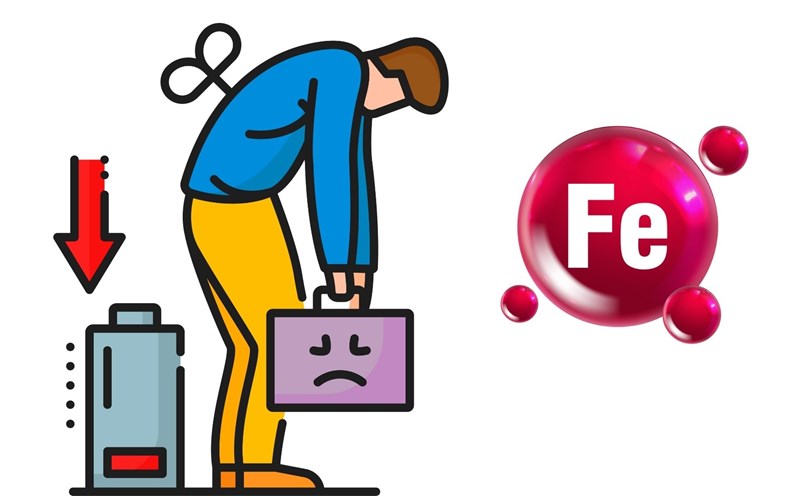Why is iron deficiency common in the third trimester?
Dr. Kunal Sehgal, Chief pathologist at Neuberg Sehgal laboratory (Mumbai, India) said that during this period, the mother's blood volume increases significantly to nourish the fetus and the placenta. If the diet does not have enough iron, women will easily suffer from iron deficiency anemia.
A 2024 study in Ireland found that iron deficiency increased from 4.5% in the first trimester to more than 50% in the third trimester. Experts recommend maintaining ferritin levels above 60 μg/L from the beginning of pregnancy to reduce the risk of iron deficiency later on.
Signs of iron deficiency
Common symptoms of iron deficiency include:
Fatigue, dizziness, weakness
pale skin, shortness of breath, heartbeat
Cravings for non-food items (pica) such as stone or soil
Loss of concentration, headache
How to supplement iron safely and effectively
Eat a variety of iron-rich foods
Prioritize foods of animal origin (heme iron), which are easier to absorb: red meat, poultry, fish.
Add plant-based iron (non-heme iron) foods such as beans, lentils, spinach, iron-fortified cereals.
Eat with foods rich in vitamin C (orange, pineapple, bell peppers...) to help the body absorb iron better.
Limit drinking tea, coffee or calcium supplements close to eating or drinking iron, as they can reduce the ability to absorb iron.
Drink iron capsules according to medical instructions
The World Health Organization (WHO) recommends that pregnant women should supplement 30-60mg of iron per day, combined with 400mcg of folic acid to prevent anemia, premature birth and low birth weight.
If drinking iron every day causes discomfort (such as constipation, nausea...), according to Onlymyhealth, doctors can recommend:
Eat iron every day or week.
Transfer to slow- release iron balls.
In severe cases, iron may need to be transferred through a vein.
Blood check and monitor periodically
Blood testing to check for anemia should be done early in pregnancy and repeated in the second and third trimester.
Based on the results, the doctor will adjust the appropriate iron dosage to avoid any harmful excess.











